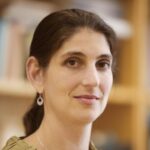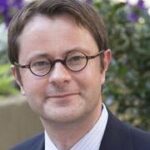Register for The Herbert Benson, MD Course in Mind Body Medicine Oct 27-29, 2022
Register for The Herbert Benson, MD Course in Mind Body Medicine Oct 27-29, 2022
October 27-29, 2022 In-Person AND Live Streaming
We are pleased to announce that registration is now open for The Herbert Benson, MD Course in Mind Body Medicine, the Benson-Henry Institute’s celebrated continuing medical education (CME) course, offered in partnership with Harvard Medical School.
The course will be held live in person October 27-29, 2022 at the Renaissance Waterfront Hotel in Boston, MA and will be livestreamed to participants around the world. Video recordings of all talks will be available to all conference-goers for up to 60 days. For the first time ever, BHI is also offering an optional online pre-course workshop, Group Medical Visits to Guide Patients to Healthier Lifestyle Behaviors.
“The Herbert Benson Course in Mind Body Medicine is an opportunity for clinicians, researchers, scientists and mind body enthusiasts to explore the latest research and learn the best techniques in mind body medicine. Our work – providing patients with skills to build resilience and improve wellbeing – are essential as we rebound from the pandemic and face a multitude of other stressful challenges at home and abroad. We are so pleased to be able to meet each other again in person this fall, and to provide online streaming to participants around the world. The course provides a wonderful opportunity to connect and collaborate with colleagues around the world,” said BHI Director Gregory Fricchione, MD. “We have an impressive line-up of keynotes and experts in the field, and this year we are offering an exciting new optional half-day course on delivering mind body medicine in group visits.”
Keynote speakers are renowned healthy aging researcher Elissa Epel, Ph.D., co-author of “The Telomere Effect” (2017) with Elizabeth Blackburn, a NYT bestseller under the category of Science; Laura Kubzansky, PhD, co-director of the Lee Kum Sheung Center for Health and Happiness, and director of the Society and Health Laboratory at the Harvard T.H. Chan School of Public Health; internationally recognized thought and practice leader Rhonda V. Magee M.A., J.D., author of The Inner Work of Racial Justice: Healing Ourselves and Transforming Our Communities Through Mindfulness (2019); and Tyler J. VanderWeele, Ph.D., Director of the Human Flourishing Program and Co-Director of the Initiative on Health, Religion and Spirituality at Harvard University.
This program is among the highest-rated Harvard Medical School CME course. The Harvard Medical School is accredited by the Accreditation Council for Continuing Medical Education (ACCME) to provide continuing medical education for physicians. The Harvard Medical School designates this live activity for a maximum of 27.75 AMA PRA Category 1 Credits™. Physicians should claim only the credit commensurate with the extent of their participation in the activity. For additional accreditation information, please see below.
Participants will get
- The latest clinical approaches and integrative models of care
- Cutting-edge research into the linkages between the brain and the body
- Education on genomics, transcriptomics, metabolomics ad how to leverage recent advances in the neuroimaging of contemplative states
- Current data on stress, stress management and resilience enhancement, and their impacts on patient health and treatment options
For course scheduling, information and to register, please visit mindbody.hmscme.com. Register by September 20th for an early bird discount.
About our Keynotes
 Elissa Epel, Ph.D, is a Professor and Vice Chair in the Department of Psychiatry at University of California, San Francisco. Her research aims to elucidate mechanisms of healthy aging, and to apply this basic science to scalable interventions that can reach vulnerable populations.
Elissa Epel, Ph.D, is a Professor and Vice Chair in the Department of Psychiatry at University of California, San Francisco. Her research aims to elucidate mechanisms of healthy aging, and to apply this basic science to scalable interventions that can reach vulnerable populations.
Dr. Epel studies psychological, social, and behavioral pathways underlying chronic psychological stress and stress resilience that impact cellular aging. She also studies the interconnections between stress, addiction, eating, and metabolic health. of stress in aging, and on reversibility of early life adversity, and Science of Behavior Change.
Her research has been featured in venues such as TEDMED, NBC’s Today Show, CBS’s Morning Show, 60 minutes, National Public Radio, New York Times, Wall Street Journal, Wisdom 2.0, Health 2.0, and in many science documentaries. She co-authored “The Telomere Effect” (2017) with Elizabeth Blackburn, a NYT bestseller under the category of Science.
 Laura Kubzansky, PhD is Professor of Social and Behavioral Sciences, co-director of the Lee Kum Sheung Center for Health and Happiness, and director of the Society and Health Laboratory at the Harvard T.H. Chan School of Public Health.
Laura Kubzansky, PhD is Professor of Social and Behavioral Sciences, co-director of the Lee Kum Sheung Center for Health and Happiness, and director of the Society and Health Laboratory at the Harvard T.H. Chan School of Public Health.
Dr. Kubzansky has published extensively on the role of psychological and social factors in health, with a focus on the effects of stress and emotion on heart disease. Primary lines of research include: 1) studying whether and how stress, emotion and other psychological factors may help to explain the relationship between social status and health; 2) studying whether and how positive psychological functioning and positive aspects of the social environment may lead to greater longevity and healthier aging. Other research projects and interests include biobehavioral mechanisms linking emotions, social relationships, and health; defining and measuring aspects of well-being; relationships between early childhood environments, resilience, and healthy aging; interactions between stress and environmental exposures (e.g., lead, air pollution) and how they influence health; workplace and other social conditions in relation to well-being; strategies for modifying psychological well-being.
 Rhonda V. Magee M.A. Sociology, J.D. is a Professor of Law at the University of San Francisco and an internationally recognized thought and practice leader focused on integrating mindfulness into higher education, law and social change work. A prolific author, she draws on law and legal history to weave storytelling, poetry, analysis and practices into inspiration for changing how we think, act and live better together in a rapidly changing world.
Rhonda V. Magee M.A. Sociology, J.D. is a Professor of Law at the University of San Francisco and an internationally recognized thought and practice leader focused on integrating mindfulness into higher education, law and social change work. A prolific author, she draws on law and legal history to weave storytelling, poetry, analysis and practices into inspiration for changing how we think, act and live better together in a rapidly changing world.
Dr. Epel is the author of numerous articles and book chapters on mindfulness in legal education, and on teaching about race using mindfulness, including “Educating Lawyers to Meditate?” 79 UMKC L. Rev. 535 (2011), “The Way of ColorInsight: Understanding Race and Law Effectively Using Mindfulness-Based ColorInsight Practices”, 8 Georgetown J. of Mod. Crit. Race Perspectives 251 (2016), “Teaching Mindfulness with Mindfulness of Diversity,” in McCown et al, Resources for Teaching Mindfulness: An International Handbook (Springer, 2017), and “Community Engaged Mindfulness and Social Justice: An Inquiry and Call to Action”, in Purser et al., Handbook of Mindfulness: Culture, Context and Social Engagement (2017).
Her first book, The Inner Work of Racial Justice: Healing Ourselves and Transforming Our Communities Through Mindfulness, was published in September 2019 by TarcherPerigee, a member of the Penguin Random House Group, with paperback issued in September 2021.
 Tyler J. VanderWeele, Ph.D., is the John L. Loeb and Frances Lehman Loeb Professor of Epidemiology in the Departments of Epidemiology and Biostatistics at the Harvard T.H. Chan School of Public Health, and Director of the Human Flourishing Program and Co-Director of the Initiative on Health, Religion and Spirituality at Harvard University. He holds degrees from the University of Oxford, University of Pennsylvania, and Harvard University in mathematics, philosophy, theology, finance, and biostatistics.
Tyler J. VanderWeele, Ph.D., is the John L. Loeb and Frances Lehman Loeb Professor of Epidemiology in the Departments of Epidemiology and Biostatistics at the Harvard T.H. Chan School of Public Health, and Director of the Human Flourishing Program and Co-Director of the Initiative on Health, Religion and Spirituality at Harvard University. He holds degrees from the University of Oxford, University of Pennsylvania, and Harvard University in mathematics, philosophy, theology, finance, and biostatistics.
His methodological research is focused on theory and methods for distinguishing between association and causation in the biomedical and social sciences and, more recently, on psychosocial measurement theory. His empirical research spans psychiatric and social epidemiology; the science of happiness and flourishing; and the study of religion and health. He is the recipient of the 2017 Presidents’ Award from the Committee of Presidents of Statistical Societies (COPSS). He has published over four hundred papers in peer-reviewed journals; is author of the books Explanation in Causal Inference (2015), Modern Epidemiology (2021), and Measuring Well-Being (2021); and he also writes a monthly blog posting on topics related to human flourishing for Psychology Today.
ADDITIONAL ACCREDITATION INFORMATION:
NURSES Harvard Medical School is accredited as a provider of nursing continuing professional development by the American Nurses Credentialing Center’s Commission on Accreditation. This activity is approved for 27.75 contact hours. Contact hours are awarded commensurate with participation and completion of the online evaluation and attendance attestation. We suggest claiming your hours within 30 days of the activity date; after this time, the attendance attestation will still be required to claim your hours.
PSYCHOLOGISTS This course will be submitted for continuing education credits.
SOCIAL WORKERS This course will be submitted for continuing education credits.
NURSE PRACTITIONERS For the purpose of recertification, the American Academy of Nurse Practitioners Certification Board and American Nurses Credentialing Center accept AMA PRA Category 1 Credit™ issued by organizations accredited by the ACCME (Accreditation Council for Continuing Medical Education). We would also suggest that learners check with their state licensing board to ensure they accept reciprocity with AMA PRA Category 1 Credit™ for re-licensure.
PHYSICIAN ASSISTANTS The National Commission on Certification of Physician Assistants (NCCPA) states that AMA PRA Category 1 Credits™ are acceptable for continuing medical education requirements for recertification. We would also suggest that learners check with their state licensing board to ensure they accept reciprocity with AMA PRA Category 1 Credit™ for re-licensure.
CANADIAN ACCREDITATION The Royal College of Physicians and Surgeons of Canada recognizes conferences and workshops held outside of Canada that are developed by a university, academy, hospital, specialty society or college as accredited group learning activities.
EUROPEAN ACCREDITATION The American Medical Association (AMA) has an agreement of mutual recognition of continuing medical education (CME) credit with the European Union of Medical Specialties (UEMS). Additional information regarding this agreement may be found here: https://www.ama-assn.org/education/ama-pra-credit-system/agreement-european-union-medical-specialties-uems
Please contact Jocelyn Meek at jmeek@partners.org for information on accreditation status.




